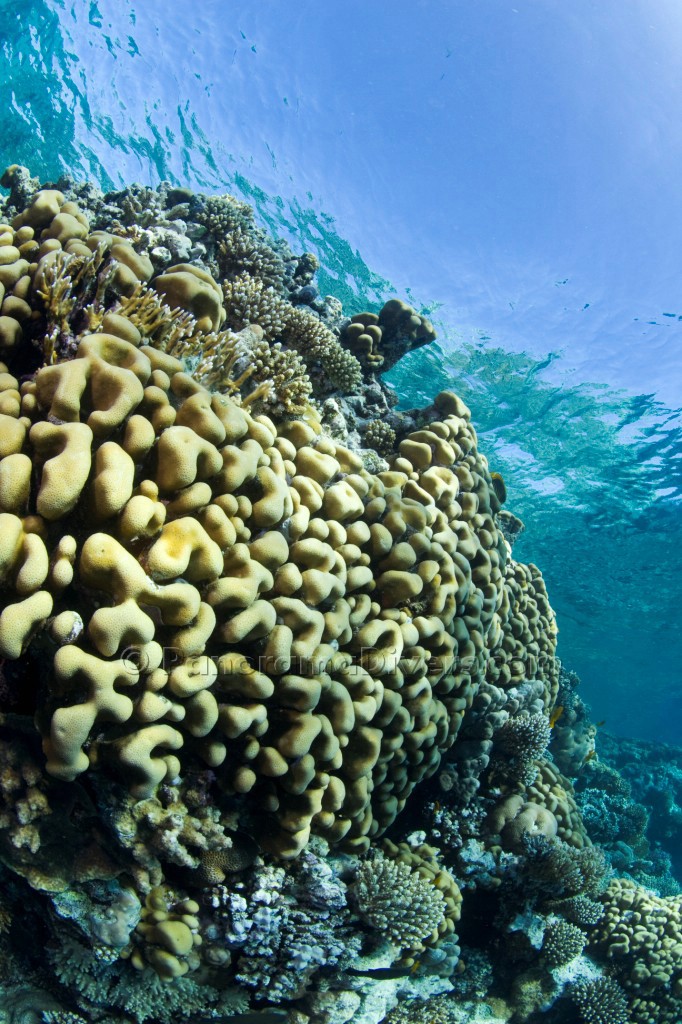Blog
Why We Shouldn't Touch Anything Underwater: Preserving and Respecting the Underwater World
- by Cindy
-
in Blog
-
Hits: 890
Why We Shouldn't Touch Anything Underwater: Preserving and Respecting the Underwater World
Introduction:
While it may seem like common sense to some, it appears that not everyone understands the importance of not touching anything underwater. When we dive or swim in oceans, seas, or lakes, we enter a complex and delicate underwater world. Touching and disturbing this fragile ecosystem can have harmful consequences for marine life, for divers themselves, and for future generations. In this article, we will explore the reasons why we must respect and preserve the underwater world by avoiding touching anything under the water.
-
Injury to Marine Life:
The underwater world is home to an incredible diversity of creatures, big and small, that play a vital role in the ecological balance. By touching or disturbing these organisms, we risk injuring or disrupting their natural habitats. Some coral species, for example, are highly sensitive to human contact and can die from a simple touch. By preserving their environment, we promote biodiversity and the maintenance of the underwater ecosystem. -
Harm to Divers:
In addition to the potential harm to marine life, touching objects underwater can also put divers at risk. Some marine organisms, such as jellyfish or venomous fish, can cause painful or even dangerous reactions. By avoiding any contact, we reduce the risk of injuries to ourselves and others. -
Setting an Example:
As divers or swimmers, we have the responsibility to be role models for others and to set an example in respecting the marine environment. By adopting a non-interventionist attitude, we encourage others to do the same and to preserve this natural heritage for future generations. -
Respect:
Preserving and respecting the underwater world by avoiding touching anything underwater is a responsibility that all divers, swimmers, and nature enthusiasts should take on. By adopting respectful behaviors, we can contribute to the preservation of marine life, ensure our own safety, and pass on a protected environment to future generations. -
Preservation of the Underwater World:
Touching corals, marine creatures, or objects underwater can disrupt fragile ecosystems. Such disturbances can propagate through the food chain, causing extensive damage to the entire ecosystem. By preserving these habitats, we contribute to the survival of marine species and the overall health of the oceans.
-
Legacy for Future Generations:
By becoming aware of our impact on the underwater world and adopting respectful behaviors, we offer a precious legacy to future generations. Leaving behind intact oceans and seas, where marine life can thrive undisturbed, is an invaluable gift for generations to come. -
Disruption of Balance:
The underwater world is a complex ecosystem where each element plays an essential role in the global balance. Touching these elements risks disturbing this delicate equilibrium. While the effects of disturbances may be difficult to predict, they could have detrimental consequences for marine life and for ourselves. -
Influencers and So-Called Experts on Social Media:
It is essential to recognize that just because we see influencers or so-called experts on social media touching sharks, petting turtles, or handling other marine organisms, it doesn't make it right. Unfortunately, some people, even those who are well-known, do not always promote the right values and attitudes toward marine life. Such behavior can create the impression that it is normal or acceptable when, in reality, it can cause serious harm to the marine environment. As responsible divers, we must exercise discernment and follow good practices of respect and preservation of the underwater world, rather than succumbing to irresponsible behaviors propagated online. -
Maintaining a Distance from Reefs and Corals as a Preventive Measure:
Even though we all aspire to perfect buoyancy during our dives, it is crucial to remember that accidents can happen. If you are not yet proficient in buoyancy control, it is best to always maintain a safe distance from reefs, corals, and other fragile marine organisms as a preventive measure. Even slight contact can cause irreversible damage to these delicate ecosystems. By keeping a respectful distance, you significantly reduce the risk of unintentional disturbances and demonstrate your commitment to preserving the underwater world. -
Not "Harassing" Marine Life:
When underwater, it is essential to remember that our presence can influence the behavior of marine life. Harassing marine life by trying to touch or capture them can induce stress and anxiety in these creatures. As a result, they may leave the area or alter their behavior to avoid us. This not only spoils the diving experience for us and our dive buddies but can also be detrimental to marine life. By forcing them to use essential energy reserves to escape predators or find food, we disrupt their natural balance and jeopardize their survival. Adopting a passive and respectful attitude is the best way to appreciate the beauty of the underwater world while preserving it for future generations.Conclusion:
By bringing together these reasons, we understand the critical importance of not touching anything underwater. Preserving and respecting the underwater world is a responsibility that all divers, swimmers, and nature lovers must embrace. By adopting respectful and responsible behaviors, we can contribute to the preservation of marine life, ensure our own safety, and pass on a protected and flourishing underwater environment to future generations. Let us work together to protect this precious underwater ecosystem, ensuring its survival for generations to come and preserving the beauty and diversity of the oceans and seas that enrich our planet..
Comments
- No comments found




Leave your comments